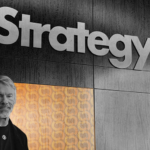Tether, the world’s leading issuer of stablecoins, is reportedly gearing up to raise between $15 billion and $20 billion through a private placement deal. This significant move aims to enhance both its existing and new business ventures as it expands its footprint beyond the cryptocurrency sector.
According to a Bloomberg report, Tether, headquartered in El Salvador, plans to offer approximately a 3% stake through this initiative. Tether’s chief technology officer, Paolo Ardoino, has confirmed the plans and stated that the firm is “evaluating a raise from a selected group of high-profile key investors.” This capital influx is intended to maximize the firm’s strategic growth across a variety of business lines, including its core stablecoin operations, commodities trading, artificial intelligence, energy, and media.
The discussions regarding this private placement are reportedly in their initial stages, and details concerning the size and specifics of the offering may change as negotiations progress. If the deal materializes successfully, Tether’s valuation could soar to around $500 billion, placing it in the same league as some of the largest global companies, such as Sam Altman’s OpenAI and Elon Musk’s SpaceX.
Tether’s flagship digital currency, USDT, remains the go-to choice in the cryptocurrency market. With a current market capitalization exceeding $173 billion, it solidifies its position as the largest stablecoin available and ranks third among all cryptocurrencies overall. Its closest competitor, Circle’s USDC, holds a market cap of approximately $73.95 billion.
Additionally, Tether is working on debuting a fully U.S.-compliant stablecoin named USAT, aimed at American businesses and institutions. This development comes as new stablecoin regulations are being implemented under the GENIUS Act. USAT will enter a competitive landscape, going head-to-head with Ripple’s RLUSD and other emerging stablecoins.
The drive for increased adoption is evident, with a Tether-centric stablecoin network in New York recently raising significant funds to promote the usage of USDT in global commerce. Notably, automakers in Bolivia have announced plans to accept USDT as a payment method, further broadening its acceptance as a viable transaction currency.







